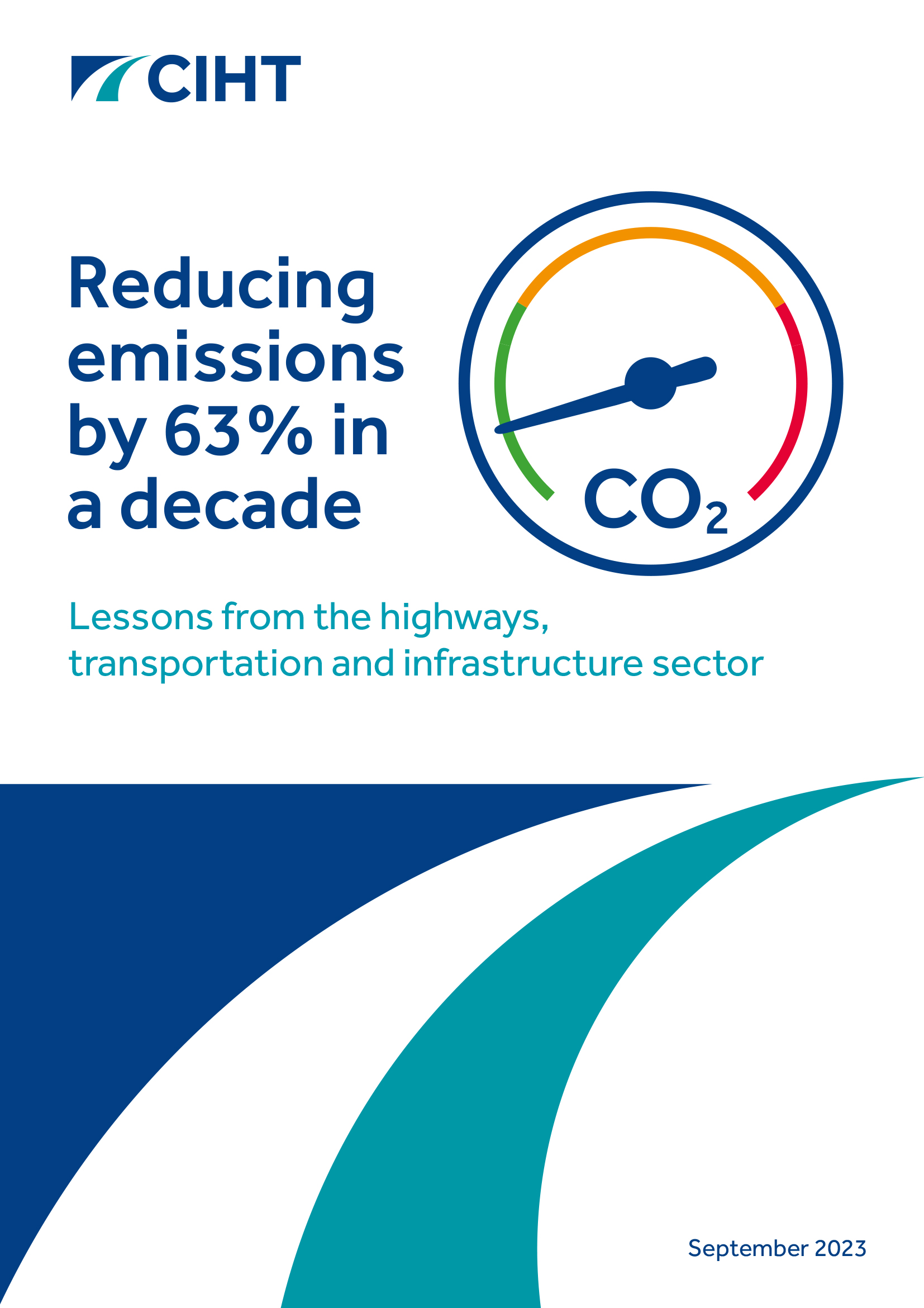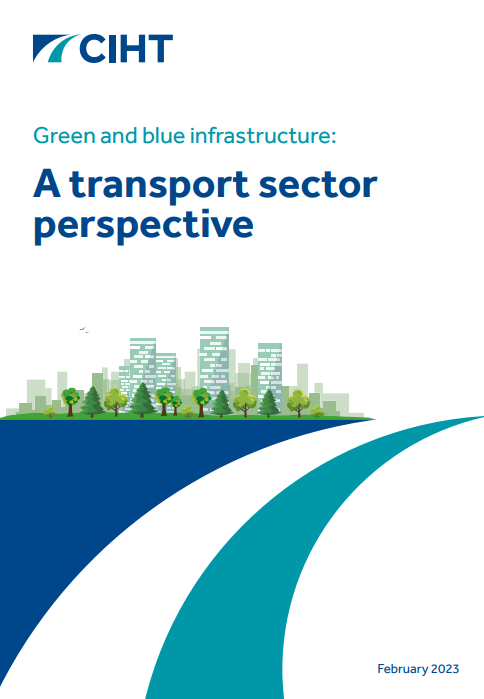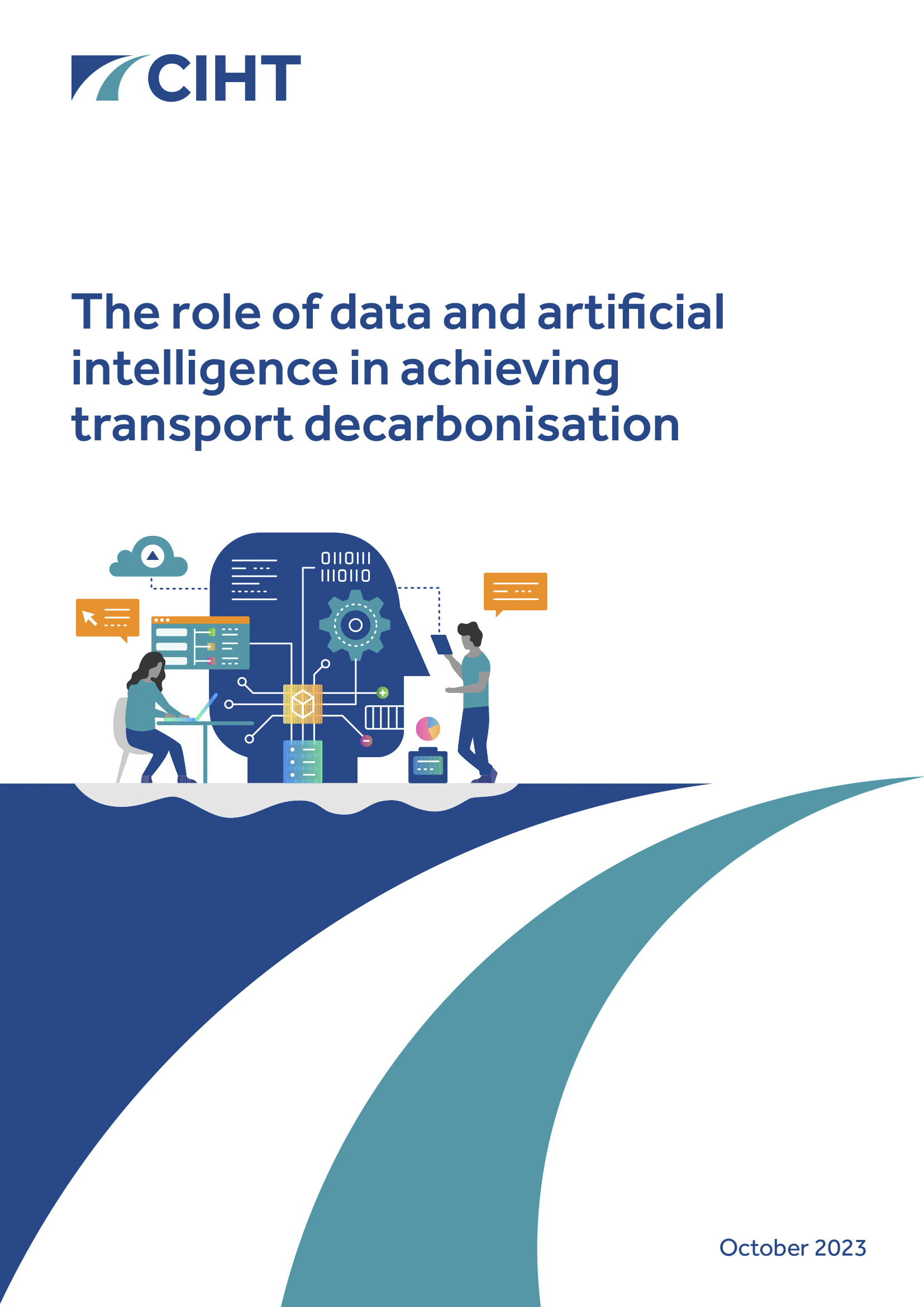
This paper seeks to understand the existing policy, guidance, culture and contractual mechanisms to reduce carbon emissions from highways and transport procurement activity to achieve the delivery of Net Zero.
Join other savvy professionals just like you at CIHT. We are committed to fulfilling your professional development needs throughout your career
One of CIHT’s key priorities is to reduce carbon emissions from highways and transport sector
activity. An area where there is considerable untapped opportunity is in the procurement of highways and transport infrastructure and services.
This policy review seeks to understand the existing policy, guidance, and contractual mechanisms to reduce carbon emissions from highways and transport activity, gauge current levels of awareness and use of existing processes, and identify areas of success and where further development is needed.
Sarah Sharples (Department for Transport Chief Scientific Adviser)
Glenn Lyons (CIHT Vice President)
Rachel Skinner (ICE Past President)
Through this paper the project group examined: policy and legislation, contract mechanisms and supply chain, WLC assessment, and leadership, culture, behaviour, and education, with recommendations arising from each summarised as:
The project group was chaired by Mike O’Dowd-Jones - Strategic Commissioner for Highways and Transport Services at Somerset Council, and David Ogden - Executive Director Asset & Maintenance Solutions at Colas Ltd.
The project group was made up of representatives from organisations in CIHT's Partnership Network.
Daniel Pitcher, Amey
Michael Lindsay, Amey
Emily Collins, Arcadis
Mark Coates, Bentley Systems
Daniel Moore, Colas Ltd
Craig Hannam, Fosroc
Stuart Bradshaw, Lancashire County Council
Kalpini Dave, London Councils
Dr Kim Yates, Mott Macdonald
Pasha MacLachlan, Mott Macdonald
David Purser, Project Centre Ltd
Carly Wright, Ringway
Rob Mcdonald, Stantec
Simon Earl, Stantec
Dr David Jackson, Sweco
Barbara Butler-Griggs, VINCI
David Clegg, WSP
Recognition is also due to CIHT staff members, including Anastasia Trofimova and Joan Roemmele.
The CIHT Partnerships Network is a collaborative hub for leaders and decision makers in the highways and transport sector.
The network provides organisations and companies with the opportunity work in collaboration with the Institution as a charity, learned society and membership body to promote excellence across the highways and transportation sector.
>>> Learn more about CIHT's Partnerships Network
A recording of the launch of CIHT’s report, Building Carbon Reduction into Procurement Processes.
This paper sought to understand the existing policy, guidance, culture and contractual mechanisms to reduce carbon emissions from highways and transport procurement activity to achieve the delivery of Net Zero
Presentations from members of the group, providing an overview and the structure of the paper plus some personal reflections from working on the paper. Key messages, which readers of the paper will take away, are highlighted and encouragement given on what we collectively need to do next.
Session 1: https://attendee.gotowebinar.com/recording/1417597478416076545
A lively discussion looking further into the ‘how’ on implementing the recommendations, drawing out specific examples and suggestions.
Q&A: https://attendee.gotowebinar.com/recording/7568145677428038147
Presentation on the importance of whole life carbon management and assessments becoming industry norms and a detailed presentation on best practices demonstrated within the Dorset case study referenced within the paper, on reducing carbon through procurement.
Session 2: https://attendee.gotowebinar.com/recording/4499892509485344514
A wide-ranging discussion on how to make use of procurement for decarbonisation from a strategic and political level to operational implementation and priorities.
Panel discussion: https://attendee.gotowebinar.com/recording/3883857035166029572
CIHT's report 'Reducing emissions by 63% in a decade' shares real world experience from across the CIHT partnership network about how Highways Authorities and their supply chain partners have reduced transport related carbon emissions via a wide range of measures including low carbon materials, logistics planning, electrification of construction plant, transport planning, procurement, innovative design, multi-partner collaboration, and reforms to codes and standards.
>>> Read 'Reducing emissions by 63% in a decade'
It is widely recognised that green and blue infrastructure (GBI), which encompasses natural and semi-natural features, interventions, and structures, can bring many social, environmental, and economic benefits to a local area. However, a recent CIHT survey suggests that these benefits are not fully acknowledged by the transport sector, even though the UK’s great heritage of street trees was largely created by local authority highway departments.
On this basis, we have made several recommendations to our members, central government agencies, and local authorities, which broadly cover three main tasks we believe are necessary to help improve and encourage GBI on our roads.
>>> Read 'Green and blue infrastructure: A transport sector perspective'
Artificial intelligence (AI) is a technology aimed at performing human-like tasks, such as perception, logic, and reasoning. AI is not a new phenomenon, but it is a topic that has recently been gaining greater attention and is becoming more common in our work and social lives than ever before. This report intends to serve as an introduction to AI for the highways and transportation sector. We hope you gain a better understanding of what AI is, the importance of data for creating successful AI outputs, where AI is already being used in the transport sector, where it is likely heading, and what needs to be done to accelerate successful AI adoption.
>>> Read 'The role of data and artificial intelligence in achieving transport decarbonisation'
If you have any questions please contact technical@ciht.org.uk
For media enquires please contact the CIHT Communications Team at communications@ciht.org.uk or +44 (0)20 7336 1555 (Option 4)
Sign up to the APM Newsletter.